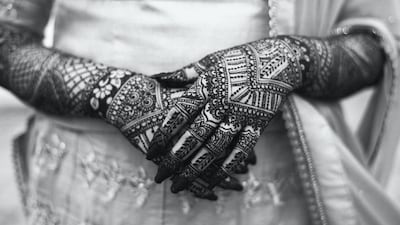Leading Indian matrimony website Shaadi.com, which connects singles looking for life-long partners, has announced that it has removed an option that asked users to declare the colour of their skin on their profiles as a tag of sorts.
The move came after an online petition demanding the change got more than 1,5000 signatures.
Several Shaadi.com users in the UAE told The National that they had answered the question regarding the colour of their skin when they first joined the platform, with the options being fair, wheatish and dark. They also confirmed that this feature is no longer on their profiles.
"When I signed up about seven or eight years ago, I remember there being a box asking me to choose between dark, fair, wheatish," one Dubai resident tells us. "A lot of people also put well-lit photos or Photoshopped profile images to make their skin look lighter than it actually is."
“Some profiles mention that a person is fair-skinned, and although they don’t say that they expect a fair-skinned match, it is implied. Meanwhile, there are some profiles that openly say they are looking for fair-skinned partners.”
The petition to make the change was started by US resident Hetal Lakhani after a user, Meghan Nagpal from Toronto, brought attention to the issue.
Nagpal, who was using the platform at the time, wrote to Shaadi.com questioning the filter, particularly in light of the recent anti-racism protests in the US.
A representative from the platform got back saying, “As you know, this is a matrimonial site and most parents do require this as an option so it’s visible on the site.”
When Lakhani heard about this, she started the online petition on change.org, and it received more than 1,500 signatures in 14 hours.
"I took the action of creating the petition after I saw the reply Meghan received from customer care service," Lakhani told The National. "The obsession with fair skin is still notorious within South Asian communities. The notion that fair skin makes a better bride/husband is still of significance, whilst completely ignoring the personality, experience of life and the ability to make a good partner and son/daughter in law.
“Now is the time to re-evaluate what we consider beautiful," she added. "Colourism has significant consequences in our community, especially for women. People with darker skin experience greater prejudice, violence, bullying, social sanctions, and all kinds of skin-lightening treatments are recommended to them under the guise of 'making them desirable' or 'making them more beautiful'."
On June 11, Shaadi.com tweeted that the search filter was a “blind spot” and had since been removed. The tweet also said that it did not collect or capture this information on its platform, and it was not possible to filter profiles using this feature.
A representative of Shaadi.com has since commented:
"There is no skin colour filter on Shaadi.com, on any of its platforms. What you are referring to is several year old product debris left-over in one of our advanced search pages on the website, which is non-functional and barely used and hence it did not come to our attention.
"When a user highlighted this, we were thankful and had the remnants removed immediately as it was a non-functional aspect of the product, which very few users even stumbled across. Since there was no user impact and product debris is a fairly common occurrence in tech companies, we took it in our stride accordingly. We do not discriminate based on skin colour and our member base is as diverse and pluralistic as the world today is."
The topic of colourism is South Asian communities has come to the limelight in the wake of the anti-racism protests in the US, with several leading Bollywood stars under fire for condemning racism after promoting skin-lightening products.
On June 20, Johnson & Johnson confirmed that it would stop selling its Clean & Clear Fairness line of products as well as its Neutrogena Fine Fairness range, both of which are marketed as helping to reduce dark spots, but with names and branding that suggest they will lighten all skin.
More than 11,000 people have now signed a petition that urges Unilever to stop selling Fair & Lovely, a skin-lightening product available to buy in Asia and the Middle East.
*Edited to include quotes from Hetal Lakhani and a Shaadi.com representative.


